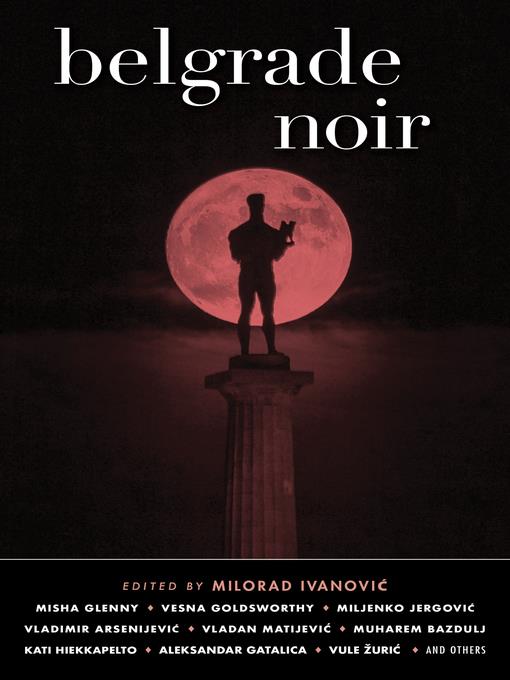
Belgrade Noir
Akashic Noir
- اطلاعات
- نقد و بررسی
- دیدگاه کاربران
نقد و بررسی

October 5, 2020
History haunts Belgrade in this so-so entry in Akashic’s noir series. Two of the stronger selections, Muharem Bazdulj’s “Black Widow, White Russian” and Vladimir Arsenijevic’s
“Regarding the Father,” each feature young women seeking revenge on Serbian war criminals responsible for the murder of their parents during the region’s 1990s ethnic conflicts. Events from WWI are central to Dejan Stojiljkovic’s
atmospheric “Neon Blues,” in which an ex-cop solves the mystery of a century-old death with the help of a stranger who may be a vampire. Contemporary crime is represented by Kati Heikkapelto’s “An Ad in Vecernje
Novosti,” the queasy account of a sexual sadist who takes advantage of a naive middle-aged man and his scheming mother, and by Vesna Goldsworthy’s “How to Pickle a Head of Cabbage,” about a predatory caretaker who systematically hastens the deaths of her elderly charges in order to inherit their Belgrade real estate. Unfortunately, many of the 14 stories, because of their brevity, aren’t well developed. The result is an anthology that has its share of winners but is uneven overall.

October 1, 2020
Fourteen tales of woe from what Serbian novelist Momo Kapor once called "a low-budget New York." Like all Balkan capitals, Belgrade cowers in the shadow of war. In Muharem Bazdulj's "Black Widow, White Russian," a Serbian woman who grew up in Sweden enlists the help of a recent divorc� to find the soldier responsible for her father's death. A Croatian who's secretly a Serb comes to no good in Miljenko Jergovic's "The Case of Clerk Hinko, a Noose, and Luminal." The gay heroine of Vladimir Arsenijevic's "Regarding the Father" helps her lover avenge the rape of her mother by war criminals. Vule Zuric shows Partisan and Soviet soldiers sharing the task of excavating the grave of a spy killed by the Nazis in "The Man Who Wasn't Mars." Aleksandar Gatalica allows another victim of Nazi brutality to take his revenge via time travel in "The Phantom of the National Theater." Other stories look forward rather than back in time. The spyware that the IT specialist in Misha Glenny's "The RAT" installs on a customer's iPhone thwarts a murder. Goran Skrobonja explores the consequences of a technology that allows people to create a living doppelg�nger to take their place when they want to be somewhere else in "Alter Ego Inc." And some stories are timeless in showing the strange turns that can be taken by the most pedestrian among us, like the chess-playing retirees who discover a sadomasochistic sex business operating out of the cardiologist's office on the fourth floor of their apartment building in Oto Oltvanji's "Underneath It All Runs the River of Sadness." Ivanovic's contributions are from Serbian, Bosnian, Croatian, and Finnish writers--all admirably noirish.
COPYRIGHT(2020) Kirkus Reviews, ALL RIGHTS RESERVED.




دیدگاه کاربران